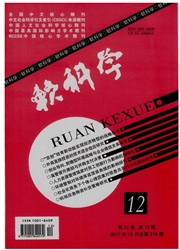

 中文摘要:
中文摘要:
构建了包含政府、运营商、提供商和消费者等4个利益主体的自我规制体系。结果显示,运营商作为规制者,如果其曝光提供商不良行为的概率增加,提供商就需要向运营商输送更大的利益,从而合谋意愿降低;消费者投诉成本降低,虽然导致提供商向运营商输送的利益减少,但合谋行为被发现的概率增加,从而合谋意愿降低。串谋均衡时,运营商的边际监督激励低,高水平的欺诈不仅取决于低水平的监督,还取决于提供商的行贿成本。
 英文摘要:
英文摘要:
This paper used the self-regulation involved government,operators,providers and consumers to exam the incentives and equilibrium. The results showed that: operators as regulator,if the probability exposed the providers' fraud increased,the providers need to bribe operators greater profit,however,it reduced the probability of collusive. The complaint cost reduced of consumer can decrease the slush fund,but raised the probability of collusive to be found. In the collusive equilibrium,vigilance was high than exposure equilibrium,but operators had lower marginal incentives to commit fraud,high level of fraud not only due to the lower vigilance,but also depend on the slush fund.
 同期刊论文项目
同期刊论文项目
 同项目期刊论文
同项目期刊论文
 期刊信息
期刊信息
